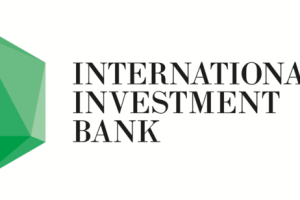Alătură-te comunității noastre!
Vezi cele mai recente știri & informații din piața de capital

The Eurozone economy slipped into a steeper downturn at the start of the fourth quarter, the rate of decline hitting the fastest since April 2013 barring pandemic lockdowns.
Manufacturing, and energy intensive sectors in particular, reported the steepest output loss, but services activity also continued to fall at an accelerating rate amid the ongoing cost of living crisis and broad-based economic uncertainty.
Germany reported the steepest economic contraction while growth in France merely stalled. Although supply shortages showed further signs of easing, inflationary pressures remained elevated amid high energy costs and upward wage pressures.
Business confidence in the year ahead meanwhile remained mired at one of the lowest levels seen over the past two years, though steadied compared to September.
The seasonally adjusted PMI Composite Output Index fell from 48.1 in September to 47.1 in October, according to the preliminary ‘flash’ reading based on approximately 85% of usual survey responses.
The PMI has now registered below the neutral 50.0 level, indicating falling business activity levels, for four consecutive months. The rate of decline has accelerated over this period to reach the fastest since November 2020.
Excluding pandemic lockdown months, the latest reading was the lowest since April 2013. Manufacturing led the downturn, with factory output declining for a fifth month running and slumping at a rate not seen prior to the pandemic since July 2012.
Service sector output also fell, down for a third consecutive month, contracting to a degree not witnessed outside of pandemic lockdowns since May 2013. Any growth was confined to technology, industrial services and pharmaceuticals & biotech firms. Some of the steepest downturns were seen in the chemical & plastics and basic resource sectors, often reflecting high energy dependencies.
Within the euro area, the steepest decline continued to be recorded in Germany, where the composite PMI sank to 44.1, its lowest since May 2020 and, excluding the pandemic, its weakest since June 2009.
Germany’s manufacturing and service sectors both reported steep and accelerated rates of contraction. Output meanwhile stalled in France, the composite PMI registering 50.0 from 51.2 in September, representing the first month in which output has failed to grow since March 2021.
A modest expansion of service sector output offset a marked (albeit moderating) decline in manufacturing. Elsewhere across the region, output fell for the second successive month, dropping at the fastest rate since January 2021, and excluding the pandemic since June 2013.
A modest decline in service sector output was accompanied by a steeper fall in factory production. New orders placed for goods and services meanwhile fell for a fourth straight month, the rate of loss accelerating to a pace not seen since December 2012 barring pandemic lockdown months, to indicate a steepening downturn in demand.
Excluding the pandemic, the drop in manufacturing orders was the sharpest since April 2009.









Vezi cele mai recente știri & informații din piața de capital